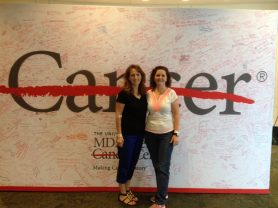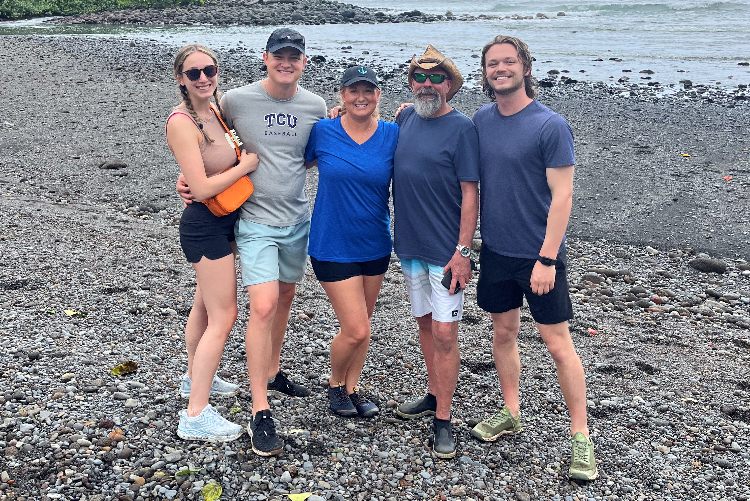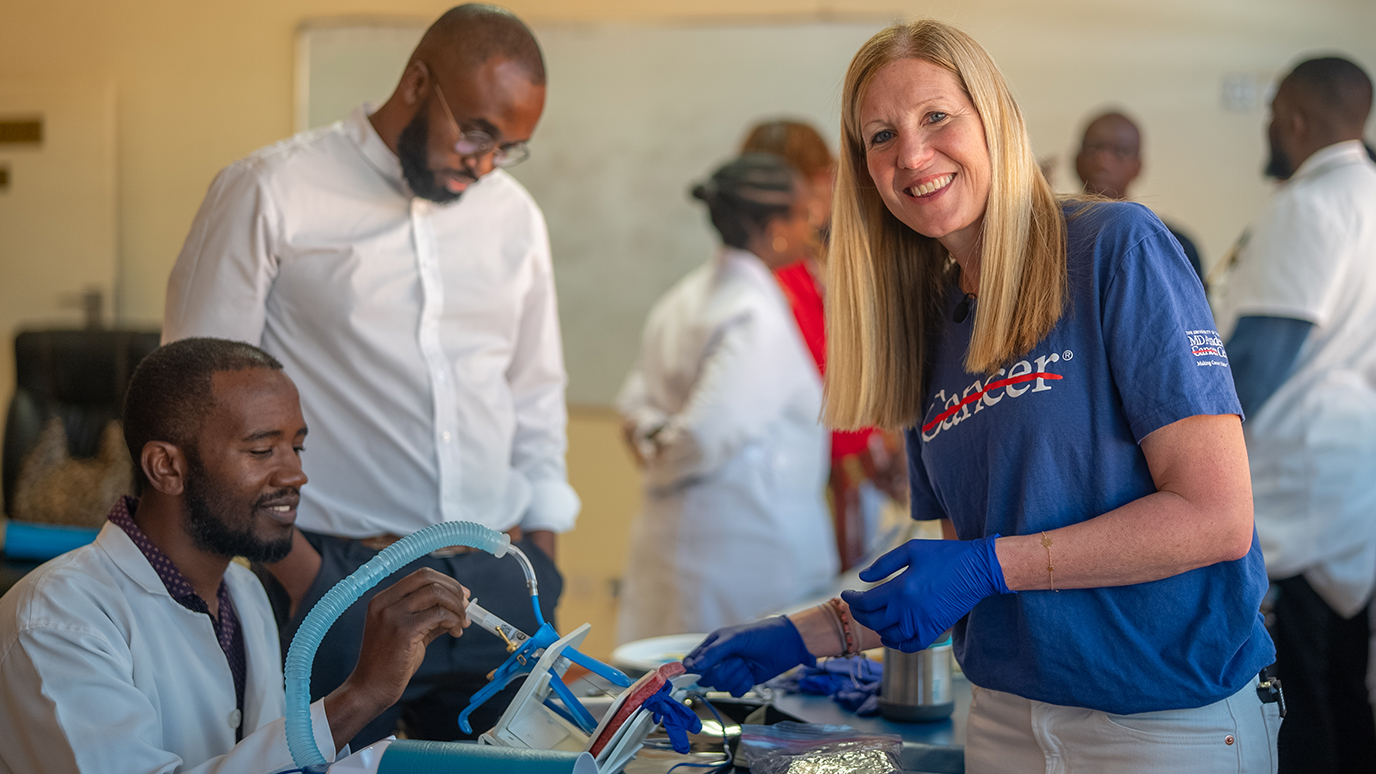- Diseases
- Acoustic Neuroma (14)
- Adrenal Gland Tumor (24)
- Anal Cancer (68)
- Anemia (2)
- Appendix Cancer (16)
- Bile Duct Cancer (26)
- Bladder Cancer (72)
- Brain Metastases (28)
- Brain Tumor (230)
- Breast Cancer (720)
- Breast Implant-Associated Anaplastic Large Cell Lymphoma (2)
- Cancer of Unknown Primary (4)
- Carcinoid Tumor (8)
- Cervical Cancer (158)
- Colon Cancer (166)
- Colorectal Cancer (114)
- Endocrine Tumor (4)
- Esophageal Cancer (44)
- Eye Cancer (36)
- Fallopian Tube Cancer (8)
- Germ Cell Tumor (4)
- Gestational Trophoblastic Disease (2)
- Head and Neck Cancer (8)
- Kidney Cancer (128)
- Leukemia (344)
- Liver Cancer (50)
- Lung Cancer (288)
- Lymphoma (284)
- Mesothelioma (14)
- Metastasis (30)
- Multiple Myeloma (100)
- Myelodysplastic Syndrome (60)
- Myeloproliferative Neoplasm (4)
- Neuroendocrine Tumors (16)
- Oral Cancer (100)
- Ovarian Cancer (174)
- Pancreatic Cancer (164)
- Parathyroid Disease (2)
- Penile Cancer (14)
- Pituitary Tumor (6)
- Prostate Cancer (146)
- Rectal Cancer (58)
- Renal Medullary Carcinoma (6)
- Salivary Gland Cancer (14)
- Sarcoma (238)
- Skin Cancer (296)
- Skull Base Tumors (56)
- Spinal Tumor (12)
- Stomach Cancer (62)
- Testicular Cancer (28)
- Throat Cancer (92)
- Thymoma (6)
- Thyroid Cancer (96)
- Tonsil Cancer (30)
- Uterine Cancer (80)
- Vaginal Cancer (16)
- Vulvar Cancer (20)
- Cancer Topic
- Adolescent and Young Adult Cancer Issues (20)
- Advance Care Planning (10)
- Biostatistics (2)
- Blood Donation (18)
- Bone Health (8)
- COVID-19 (362)
- Cancer Recurrence (120)
- Childhood Cancer Issues (120)
- Clinical Trials (632)
- Complementary Integrative Medicine (24)
- Cytogenetics (2)
- DNA Methylation (4)
- Diagnosis (232)
- Epigenetics (6)
- Fertility (62)
- Follow-up Guidelines (2)
- Health Disparities (14)
- Hereditary Cancer Syndromes (124)
- Immunology (18)
- Li-Fraumeni Syndrome (8)
- Mental Health (118)
- Molecular Diagnostics (8)
- Pain Management (62)
- Palliative Care (8)
- Pathology (10)
- Physical Therapy (18)
- Pregnancy (18)
- Prevention (914)
- Research (398)
- Second Opinion (74)
- Sexuality (16)
- Side Effects (608)
- Sleep Disorders (10)
- Stem Cell Transplantation Cellular Therapy (216)
- Support (402)
- Survivorship (322)
- Symptoms (184)
- Treatment (1790)
Surviving a total pelvic exenteration
BY Kara Million
4 minute read | Published May 11, 2016
Medically Reviewed | Last reviewed by an MD Anderson Cancer Center medical professional on May 11, 2016
I was diagnosed with cervical cancer first in 2009, and immediately sought treatment at MD Anderson. After six brutal weeks of radiation and chemotherapy, followed by two weeks of brachytherapy (internal radiation), the tumor was no longer visible.
But a little over a year later in October 2010, my doctors found that the tumor had returned.
My husband and I immediately went home and did the very thing every doctor tells you NOT to do: internet research. We looked for anything we could find on recurrent cervical cancer. Unfortunately, we did not find much in the way of survivors.
What we found was a procedure called total pelvic exenteration. It sounded very barbaric. I thought for sure new technology must’ve made such a radical surgery unnecessary. I was wrong. But I’m happy to say I’ve lived to tell my story.
Facing the prospect of total pelvic exenteration
When my oncologist, Kathleen Schmeler, M.D., sat down to explain to me exactly what a total pelvic exenteration involved, my heart sank. This major operation would remove my uterus, cervix, ovaries, fallopian tubes and vagina, as well as my bladder and part of my colon, rectum and intestines.
Everything that I had read and thought to be fiction was coming true. How was I going to survive this surgery? What were my husband and children going to do without me? I was a whirlwind of worry. I couldn’t even say the word “surgery” without breaking down into tears.
Finding support and hope
Dr. Schmeler realized I needed help. Not just help -- hope. She contacted another one of her patients, named Jodi, who had previously had a total pelvic exenteration. She told me I could call and talk to Jodi and ask her anything.
I called Jodi that very night, and we spoke for three long hours. She was an open book for anything I asked, no matter how personal. It got very personal.
She was exactly what I needed. Knowing someone was alive and well, living a life very similar to my own, I realized for the first time that this was going to be possible. The relief that came from that conversation was invaluable.
Jodi offered to meet my husband and me in person. When we met, I KNEW I was going to be OK. The fear of the surgery -- the radical, life changing, scary surgery -- melted away. If someone else could do it, so could I.
My total pelvic exenteration
My whole approach to the surgery changed. I prepared as much as I could, knowing I had a long recovery ahead. We arranged grandparents to babysit, got our Christmas shopping done, and caught up on bills and laundry. Now I was going in knowing I was coming out on the other side.
And that is exactly what I did. The 13-hour surgery went well, with no major complications. The recovery was long, and sometimes unpleasant, but it was just that – recovery. I do believe that having Jodi to talk with made all the difference in my recovery. She was still walking in the shoes I was now wearing. She was able to give me tips and tricks on how to deal with my “new normal.” We became great friends and still support each other today.
Providing support to others
I was very fortunate that Jodi was willing to share her experiences to help me. For that, I will forever be grateful. In the same way, I hope now to be able to help others. After my recovery, Dr. Schmeler asked if I would be willing to talk with patients facing total pelvic exenteration. I agreed without hesitation.
If I could give just one ounce of hope to someone, help dissolve any fears of the unknown and let them know they are not alone, then that is absolutely what I want to do. Last year, I became a volunteer with MD Anderson’s one-on-one support program, myCancerConnection, and I have enjoyed every minute of it. I have met new people, and I hope I have helped them the way Jodi helped me. I have made new friends along the way whom I will always feel a connection with.
Sometimes the obstacles we face are just plain scary, but with support I learned to stay confident and hopeful. We are not alone in this fight to end cancer, and as I learned by talking to Jodi, it becomes easier to embrace hope and think of ourselves as survivors once we realize that.
To request support from myCancerConnection or to volunteer, please call 1-800-345-6324.
Related Cancerwise Stories

I hope now to be able to help others.
Kara Million
Survivor





